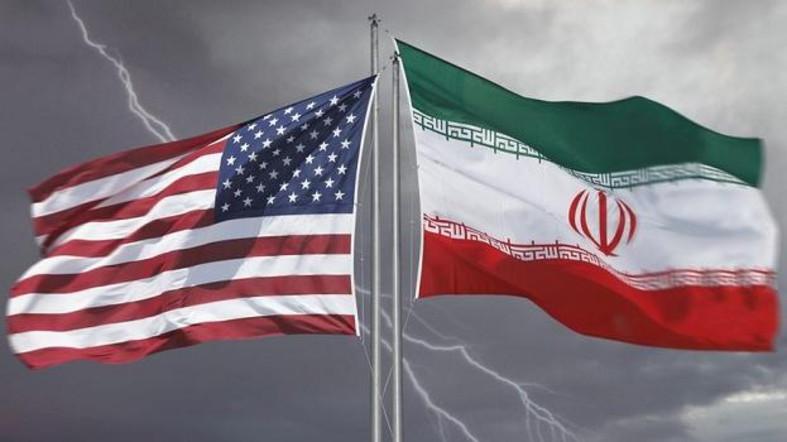لماذا فشلت مفاوضات الدوحة بين الولايات المتحدة وإيران
طارق الحميد/الشرق الأوسط/03 تموز/2022
The US and Iran’s indirect nuclear deal negotiations in Doha ended in failure
Tariq Al-Homayed/Asharq Al-Awsat/July, 03/2022
The US and Iran’s indirect nuclear deal negotiations in Doha ended in failure, with an American official saying that reviving the deal with Iran has become less likely after the meeting in Qatar.
The question now is: Why have the negotiations failed? Last week, I wrote that time is not on the side of Washington nor Tehran: neither can the US President offer concessions, nor does Iran have any cards to play or the ability to commit, as the Iranian regime is designed for extremism only.
The Doha negotiations failed because their foundations were not solid. They were built on mere hopes or, let us say, European illusions that Tehran might comply and wake up to dangers it would face if the negotiators ran out of time to find a deal for which no deadline had been set.
I understood my sources as saying that the Europeans tried to convince the Americans that President Biden’s visit to the region, specifically the upcoming summit in Saudi Arabia, would put the Iranians under pressure and that the Doha negotiations could thus be an opportunity.
The Europeans thought, deludedly, that Iranian concerns regarding the upcoming summit would push Tehran to offer concessions. The US agreed, despite the fact that concerned officials in Washington were saying that nothing would be achieved before the Doha negotiations had begun.
Some in Washington say that for two reasons. The first is that those opposed to the version of the agreement that has been put forward since president Biden’s accession to the presidency have had their voices heard. The second is that time is not in favor of the US administration, and the President is unable to offer any concessions. And that is what actually happened. The European Union was forced to say that the indirect negotiations between Tehran and Washington, which aimed at breaking the ice on the nuclear deal, ended without making the progress “that the European Union team had been hoping for.”Iran’s UN Ambassador Majid Takht Ravanchi summed it up at the Security Council like this: “Iran has demanded verifiable and objective guarantees from the US that JCPOA will not be torpedoed again, that the US will not violate its obligations again, and that sanctions will not be re-imposed under other pretexts or designations.”According to Reuters, a US official responded by saying that there is no legal mechanism allowing us to compel future administrations to do anything, adding that they looked for other ways to offer anything that could reassure Iran…
And these statements demonstrate that the Iran nuclear negotiations were unsuccessful. Neither is the American President able to guarantee that future administrations will not withdraw from the agreement, nor is Iran able to commit and avoid games and lies.
Thus, we reach a moment of truth, with Reuters quoting a US official saying: “The prospects for a deal after Doha are worse than they were before Doha and they will be getting worse by the day.”
Adding: “You could describe Doha at best as treading water, at worst as moving backwards. But at this point treading water is for all practical purposes moving backwards.”
Accordingly, we now face the known facts of the Iran nuclear deal, not new ones, but the same ones that were there during the administration of President Obama. Therefore, it is time for plan B to deal with Iran and its disastrous nuclear program.
لماذا فشلت مفاوضات الدوحة بين الولايات المتحدة وإيران
طارق الحميد/الشرق الأوسط/03 تموز/2022
انتهت المفاوضات غير المباشرة بين الولايات المتحدة وإيران في الدوحة حول الاتفاق النووي بالفشل، وليس هذا وحسب، بل إن مسؤولاً أميركياً يقول إن فرص إحياء الاتفاق مع إيران باتت أسوأ بعد اجتماع قطر. السؤال الآن: لماذا فشلت المفاوضات؟ الأسبوع الماضي كتبت هنا أن عامل الوقت ليس بمصلحة واشنطن وطهران، فلا الرئيس الأميركي قادر على تقديم تنازلات، وليس لدى إيران أوراق قوة، ولا مقدرة على الالتزام فالنظام الإيراني مصمم للتشدد فقط. فشلت مفاوضات الدوحة لأنها لم تكن مبنية على أرضية صحيحة، وإنما مجرد رغبات، أو قل أوهام أوروبية، على أمل أن تستجيب طهران وتستدرك خطورة نفاد وقت مفاوضات لم يحدَّد لها أصلاً سقف زمني يحترم. ما فهمته من مصادري أن الأوروبيين حاولوا إقناع الأميركيين بأن زيارة الرئيس بايدن للمنطقة، وتحديداً القمة المرتقبة في السعودية، من شأنها وضع ضغوط على الإيرانيين، وبالتالي فقد تكون مفاوضات الدوحة بمثابة الفرصة. اعتقد الأوروبيون، وهماً، أن القلق الإيراني من القمة المرتقبة من شأنه دفع طهران لتقديم تنازلات. وافق الأميركيون على ذلك رغم أن معنيين بواشنطن كانوا يقولون، قبل بدء مفاوضات الدوحة، بأن لا شيء سيتحقق. يقول البعض ذلك بواشنطن لسببين، الأول أن معارضي الاتفاق بالصيغة التي طرحت منذ وصول الرئيس بايدن للرئاسة بات صوتهم مسموعاً الآن. والسبب الثاني أن الوقت ليس بمصلحة الإدارة الأميركية، وليس بمقدور الرئيس تقديم أي تنازلات. وهذا ما حدث فعلاً، واضطر مبعوث الاتحاد الأوروبي للقول إن المحادثات غير المباشرة بين طهران وواشنطن، والتي كانت تستهدف كسر الجمود حول الاتفاق النووي، انتهت في قطر دون إحراز التقدم «الذي كان يأمله فريق الاتحاد الأوروبي كمنسق». ولخصها السفير الإيراني لدى الأمم المتحدة بمجلس الأمن بقوله: «إيران طلبت من واشنطن ضمانات موضوعية ويمكن التحقق منها مثل ألا يتم العصف بخطة العمل الشاملة المشتركة مرة أخرى». ورد مسؤول أميركي، بحسب رويترز، قائلاً: «لا توجد طريقة قانونية تتيح لنا إلزام إدارة مستقبلية بشيء، لذا بحثنا عن طرق أخرى لتقديم ما يمكن أن يطمئن إيران… واعتقدنا أن هذا الملف قد أغلق». وهذان الاقتباسان يظهران أن كل مفاوضات الاتفاق النووي كانت حوار طرشان، وغير قابلة للنجاح. فلا الأميركي قادر على ضمان عدم انسحاب أي رئيس بعد بايدن من الاتفاق، ولا الإيراني قادر على الالتزام وتجنب الألاعيب، والأكاذيب. وبالتالي وصلنا إلى لحظة مواجهة الحقيقة حيث نقلت رويترز عن مسؤول أميركي لم تسمه قوله: «احتمالات التوصل إلى اتفاق بعد الدوحة أسوأ مما كانت عليه قبلها، وستزداد سوءاً يوماً بعد يوم». مضيفاً: «يمكنك أن تصف مفاوضات الدوحة بأحسن الأحوال بأنها متعثرة وفي أسوأ الأحوال بأنها رجوع إلى الخلف. ولكن في هذه المرحلة، فإن التعثر يعني عملياً الرجوع للخلف». وعليه نحن الآن أمام الحقائق المعروفة بالملف النووي الإيراني، وليس الآن بل منذ عهد الرئيس أوباماً، وبالتالي حان وقت الخطة «ب» للتعامل مع إيران وملفها النووي الكارثي.





















